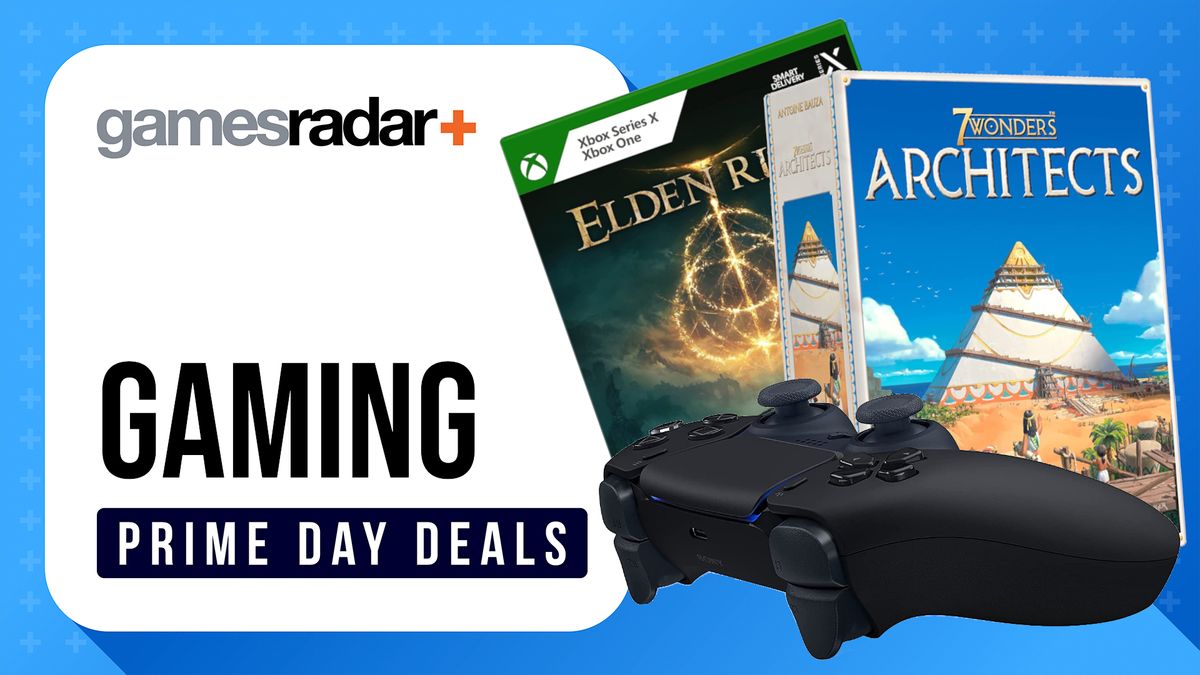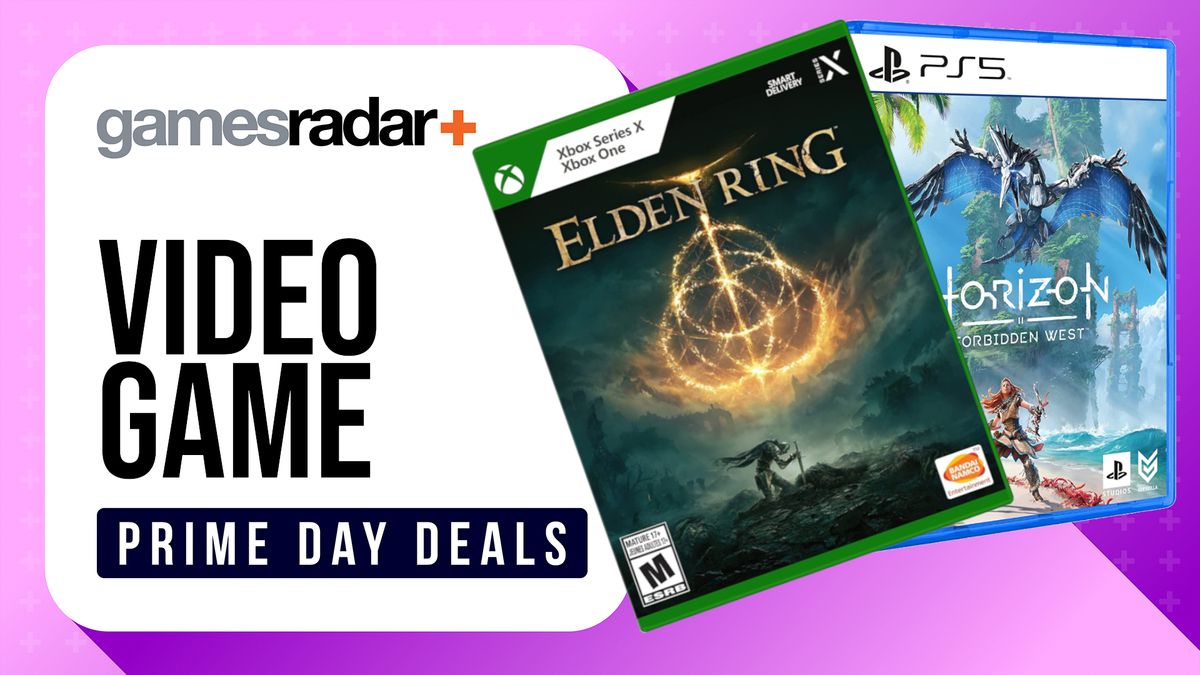Following on from the trend of last year, the best OLED TV is the panel to go for in the year 2021. If you’re looking to upgrade to a premium screen generally, and particularly if you have an eye on gaming, then an OLED TV is the best of the bunch to aim for. Whatever your main use of TV is – be it gaming, or TV and movies, or, indeed, just normal everyday use – an OLED TV is going to – probably – be top of your pile to upgrade to or acquire; they really are that good, and their reputation is that well entrenched now.
And there’s a reason the best OLED TV is going to be mighty tempting. Their characteristic deep blacks, profound contrast, and vibrant colours aren’t matched by many – and certainly not be many that can do so much of everything, so well. Offering a level of quality that regular LED LCD TVs seemingly can’t match, they’re beloved by movie lovers and gamers alike – a lot of them feature on our best gaming TV, best TV for PS5 and Xbox Series X, and best 120Hz 4K TV guides too.
LG OLED G1 55-inch TV | $2,200 $1,999.99 at Amazon (opens in new tab)
The G1 series is making headway in becoming LG’s most premiere OLED television for the year 2021 and so saving money off it already is an awesome proposition. You can read more about it’s specifics below, but this is probably the best OLED TV deal going right now.
View Deal (opens in new tab)
So what makes the best OLED TV so special? In short, OLED pixels are self-emissive. That means you get independent pixel-dimming with no need for a backlight, which translates into a compelling, cinematic viewing experience. When it comes to high contrast, you get none of the splashy haloing you typically see on LED LCD screens.
As there’s more detail in the shadows, images also appear to have greater depth. Such traits have made OLED panels a common site in Hollywood mastering suites and live sports production facilities. Moviemakers love OLED. The technology even won a Technical Emmy earlier this year. OLED flatscreens also have a wider viewing angle than LED LCD, so there’s no need to fight for the living room sweet spot.
Still need convincing? OLED handles motion better than LED LCD TVs too. Fast-moving action looks crisper, less smudgy, which makes for ultra-fine gaming detail. There are caveats though. Most significantly OLED can be prone to image retention, also known as burn-in. A static image left for hours on end can create a permanent shadow on the panel. Helpfully, makers of the best OLED TVs acknowledge this and employ a variety of countermeasures to make sure this doesn’t happen. Various techniques, including pixel rotation and screensavers, combat the issue. But it’s best not to tempt fate.
As our OLED guide reveals, prices are slipping to surprisingly affordable levels so you can get the best OLED TV for you for, hopefully, less than you might think…
The best OLED TVs


1. LG OLEDCX series
The best equipped OLED TV
Specifications
Sizes: Sizes: 48, 55, 65, and 77-inches (OLED48CX6, OLED55CX6,OLED65CX6, OLED77CX6)Input lag: 13ms (1080/60)Display type: OLEDRefresh rate : 120HzHDR: Dolby Vision, HDR10, HLGVRR: YesHDMI 2.1: Yes
Reasons to buy
+Excellent picture quality+Four HDMI 2.1 inputs+Great value now
Reasons to avoid
-UK models have poor catch-up TV support-Burn-in might be an issue, so be careful
It’s no surprise to see the LG CX top another TV list, and the CX tops this one with good reason. This brilliantly equipped screen is packed with leading-edge OLED technology, including LG’s top of the line Alpha 9 processor, home to a host of AI enhancements for both sound and picture.
The picture quality is excellent, with superlative detail, and very worthy of the mantle of best OLED TV. LG’s image processor does a remarkable job extracting subtle shadow detail from low light scenes – and brilliant colour performance – it really does offer the best visual experience money can buy.
HDR support covers regular HDR10, plus broadcast HLG and Dolby Vision. The latter uses dynamic metadata to optimise image performance on a scene by scene basis. Dolby Vision is standard on Netflix TV shows and looks to be gaining favour with Xbox game developers too.
Build quality is high, with a slim bezel and wide, centralised pedestal. And you’re well covered for connections too as there are four HDMI 2.1 inputs, each able to support 4K 120 Hz sources, like the PS5 and Xbox Series X; excellent news for multi-game device owners.
It also has VRR (Variable Refresh Rate) with G-Sync and AMD FreeSync compatibility, plus ALLM (Auto Low Latency Mode) for low lag gaming – and particularly brilliant for gamers who want to team their telly with the best gaming PC and best gaming laptop – and eARC for use with an external audio system or soundbar.
Smart connectivity is good. LG’s webOS smart platform, navigated with the brand’s Magic remote control, boasts a wide range of streaming services, including Amazon Prime Video, Netflix, Apple TV+ and Disney TV+. Unfortunately, for UK buyers it lacks Freeview Play and that means catch-up TV support is AWOL, which is a disappointment.

2. LG OLED C1 series
Excellence in gaming support, image quality, and design
Specifications
Sizes: 48-, 55-, 65- and 77-inch guises (OLED485C1, OLED55C1, OLED65C1, OLED77C1)Input lag: 12.6ms (1080/60)Display type: OLEDRefresh rate : 120HzHDR: Dolby Vision, HDR10, HLGVRR: YesHDMI 2.1: Yes
Reasons to buy
+Superb image quality+Four 4k 120Hz HDMI 2.1 inputs+LG Game Optimizer
Reasons to avoid
-No HDR10+ support for Amazon Prime Video
The C1 is the best OLED TV for new-gen gamers, and it offers terrific performance and for a fraction less than its G1 brethren (see below).
With four 4K 120Hz-capable HDMI inputs, plus a dedicated Game Optimizer control panel, it’s primed and ready for the demands of a PS5 or Xbox Series X and when you throw in some of that sweet, sweet LG-famous premium image quality you are laughing. Offering deep blacks, vibrant hues, and almost three-dimensional levels of details, this is an OLED TV to be ogled.
Motion handling has also had a tweak. TruMotion Smooth is still around if you like a slick interpolated look, but there’s also a Cinematic Movement option that does something clever with frame merging, so movies always look cinematic and film-like. It works well. HDR performance is also extremely good. The C1 supports Dolby Vision, HDR10, HGiG, and HLG. There’s no support for HDR10+ though.
The set is available in a wide range of screen sizes, beginning at 48-inches (although this offers no appreciable cost saving over the step-up 55-incher), and boasts a powerful new processor, in the shape of LG’s 4th Gen Alpha 9 chipset. AI plays a role on the audio front too: AI Sound Pro upscales stereo and 5.1, and there’s a Dolby Atmos decoder on-board.
If you’re looking to take home a premium OLED performer, the LG C1 is the obvious front runner.

3. LG OLEDG1 series
The newest LG range raises the bar – but for a price
Specifications
Sizes: 55-, 65- and 77-inches (OLED55G1, OLED65G1, OLED77G1)Input lag: 12.7ms (1080/60)Display type: OLEDRefresh rate : 120HzHDR: Dolby Vision, HDR10, HLGVRR: YesHDMI 2.1: Yes
Reasons to buy
+Superb picture quality+Four 4k 120Hz HDMI 2.1 inputs+Game Optimizer
Reasons to avoid
-Expensive, obviously -Feet or stand an optional extra
If top interior designers happened to be gamers, they would buy the LG G1. This newest contender for best OLED TV is a near-perfect blend of high design and cutting edge gaming features, and is truly a statement TV.
That said, the no-compromise design won’t be for everyone as the G1 is specifically designed for wall-mounting – it doesn’t even ship with feet or a pedestal (they’re an optional extra). This will irk some folk. However, if you can work past this, then you’re in for a treat.
The G1 is the first OLED we’ve seen to use LG’s new Evo panel. Designed to give a brighter HDR performance, it certainly delivers on this promise: the G1 delivers the best HDR performance yet from LG. Combine this with the brand’s latest 4th Gen Alpha 9 image processor, and a host of AI picture enhancement technologies, it offers a stunning picture, with wonderful detail and top notch motion handling.
Connectivity is impressive too. All four HDMI inputs are v2.1 and ready for 4K 120Hz gameplay. The G1 also supports ALLM (Auto Low Latency Mode), VRR (Variable Refresh Rate), VRR G-Sync, and VRR AMD Freesync.
Elsewhere, to finish, LG has revamped its menus for 2021 and includes a new Game Optimizer interface that allows in-depth tuning, including game genre selection, based on game style. We’re really impressed.

4. LG OLEDBX series
Best budget OLED TV – and still offers 4K 120Hz supports
Specifications
Sizes: Sizes: 55, and 65-inches (OLED55BX6,OLED65BX6)Input lag: 14.6ms (1080/60)Display type: OLEDRefresh rate : 120HzHDR: Dolby Vision, HDR10, HLGVRR: YesHDMI 2.1: Yes
Reasons to buy
+Terrific value for money+Two HDMI 2.1 inputs+Great picture quality
Reasons to avoid
-Lacks Freeview Play and catch-up TV apps
The LG BX is the jumping-on point for LG’s OLED models, undercutting its CX stablemate by some margin. There are two key reasons for this. Firstly, it uses a step-down third generation Alpha 7 image processor, as opposed to the latest Alpha 9 chip, and secondly, it has two v2.1 HDMI inputs (although this still puts it ahead of much of the competition).
Neither compromises are deal-breakers. Having two 4K 120FPS inputs means you’re still covered for both the PS5 and Xbox Series X. Secondly, the remaining HDMIs support 4k 60Hz, which isn’t too shabby. There’s also eARC support, for use with a soundbar or home cinema system, plus VRR with NVIDIA G-SYNC compatibility, and ALLM (Auto Low Latency Mode). The BX definitely still has game!
The set’s picture quality is impressive. It may lack the refinement of the CX’s Alpha 9 chippery, but when it comes to box-set binging or real-world gaming, you’re not going to feel short-changed. LG’s webOS smart platform is also undiminished, offering a wide choice of streaming apps – Netflix, Twitch, Now TV, Prime Video, and Disney+ – but with no Freeview Play on UK models, catch-up TV choice is rather more limited.
LG’s ThinQ AI technology works with Google and Amazon digital Assistants, for voice control of volume and channels, and is compatible with Homekit and Apple AirPlay 2. LG’s HDR support covers Dolby Vision, HLG, and standard HDR10, and for the most part is really effective with things like fleeting highlights, like fireworks and lighting FX.
All things considered, a bargain and definitely worthy of a place in the best OLED TV conversation.

5. Sony Bravia KD48A9BU
Sony’s hyper-stylish (small screen) 48-inch OLED sounds as good as it looks
Specifications
Sizes: 48- inches (KD-48A9)Input lag: 18.5ms (1080/60)Display type: OLEDRefresh rate : 60HzHDR: DolbyVision, HDR10, HLGVRR: NoHDMI 2.1: No
Reasons to buy
+Excellent image quality+Acoustic Surface Audio
Reasons to avoid
-No 4K 120fps HDMI input-Price premium for the smaller screen size
The only 48-inch OLED rival to LG’s smallest CX model, this pint-sized Sony TV – known in the US as the XBR-48A9S – wins our vote thanks to its superb picture performance, class leading Acoustic Surface Audio system, and stunning narrow bezel design.
Acoustic Surface Audio actually turns the screen itself into a speaker, using stereo actuators that imperceptibly vibrate the panel itself. A subwoofer built into the rear of the TV delivers deep bass. This sound system works amazingly well, giving crisp, clear powerful audio, so if you get this contender for best OLED TV, you won’t need to splash out on a soundbar. Bonus.
Image clarity comes via the brand’s lauded X1 Ultimate picture processor, known for its naturalistic HDR images. This is coupled with a Pixel Contrast Booster, which works to enhance colour and contrast in bright areas. Sony’s excellent X-Motion Clarity image interpolation system handles motion and we reckon this makes the screen a particularly good choice for sports fans.
HDR support covers HDR10, HLG and Dolby Vision. While there’s no Dolby Vision IQ or Filmmaker mode onboard, Sony uses its own Ambient Optimization technology to achieve a similar result. An onboard sensor optimises picture and sound quality, automatically adjusting picture brightness according to the ambient light in the room. It also works with audio, detecting objects in your room that might absorb or reflect sound.
For box set bingers there’s also a Netflix Calibrated Mode, a cinema-style preset designed specifically for the streaming service. Smart connectivity comes from Android, with Chromecast built-in. There’s support for Google Assistant, Amazon Alexa and AirPlay 2. Bizarrely, you’ll pay a premium for this smaller OLED over larger models, but if you’re after a bijou telly box that’ll blow you away; they really don’t get any better.

6. Philips OLED754
A cut-price OLED flatscreen with Ambilight? Feast your eyes on this light show…
Specifications
Sizes: 55- and 65- inches (55OLED754, 65OLED754)Input lag: 32.8ms (1080/60)Display type: OLEDRefresh rate: 60HzHDR: HDR10+, HDR10, HLGVRR: NoHDMI 2.1: No
Reasons to buy
+Universal HDR support+Ambilight lounge lighting
Reasons to avoid
-No 4k 120fps support-Not the lowest input lag
With its head-turning (sub- four-figure) price tag and eye candy image processing, this budget Philips OLED is a stellar buy and a real rival to the LG BX in the race for second place in our BEST OLED TV guide.
‘Why is it so cheap?’, you may well ask. Well, like the LG BX, it uses last season’s image processor, and it also lacks HDMI 2.1 inputs. On the plus side, you do get Philips three-sided Ambilight, which is a total blast. Ambilight, for those not in the know, is Philips’ long-serving mood lighting system. It can follow onscreen action, or bathe your walls in a solid colour. You can also integrate it with a Hue smart lighting system. And here’s the thing: Ambilight works spectacularly well with games, making for a truly immersive experience.
The picture performance is great. Black levels are profound, and there’s great near-dark detail too. HDR performance is extremely good, with plenty of dynamic snap. The set supports HDR10, HLG, and Dolby Vision. The audio experience is pretty ordinary though, with two 8W down-firing mid-high drivers, bolstered by a 24W woofer and passive radiators on the rear.
Design-wise the set looks the part. The bezel is thin, two widely spaced feet keep things upright, and the quality of finish is high. And set into that design, all four HDMI inputs 4K HDR at up to 60Hz, which is fine for gaming but does lack that offer of the higher frame rate and resolution support that some might be after.
Like the rest of the Philips OLED range, the OLED754 doesn’t use the Android smart TV platform. Instead, we get Philips home brew Saphi alternative. Based on Linux, it’s not as feature-rich, but it does come with all the key streaming services: Netflix, Amazon Prime Video, Rakuten TV, YouTube. There’s also catch-up TV, courtesy of the Freeview Play tuner.
Note: It’s worth noting that Philips, as we have here in the UK and Europe, is run by TP Vision. The US Philips brand is a different company, so there’s no US or Australia counterpart to this TV. Our price-finding tech will still search wherever you are for the latest prices so you might get lucky!

7. Panasonic TX-565HZ1000
Sony’s PlayStation ready mid-range TV is the only game in town for PS5 loyalists
Specifications
Sizes: 55- and 65- inches (TX-55HZ1000, TX-65HZ1000)Input lag: 21.7ms (1080/60)Display type: OLEDRefresh rate: 60HzHDR: Dolby Vision, HDR10, HDR10+, HLGVRR: NoHDMI 2.1: No
Reasons to buy
+Sensational cinematic picture performance+Universal HDR support+
Reasons to avoid
-No 4k 120fps HDMI input-Unremarkable audio
Boasting supremely cinematic pictures, this stylish contender for best OLED TV is a blockbuster performer with genuine Hollywood DNA, thanks to final image tuning by leading Hollywood colourist Stefan Sonnenfeld.
Key to its top-notch picture performance is Panasonic’s HCX PRO Intelligent image processor, which does a remarkable job delivering nuance and texture. The HZ1000 offers an outstanding HDR performance too, with bright peak highlights and superb low-level detail. The screen is compatible with all flavours of HDR: regular HDR10 and HLG, HDR10+, and Dolby Vision IQ. The latter is a smarter version of Dolby Vision, able to optimise image quality dynamically, depending on the lighting conditions in your room. This prevents HDR from looking too dark when watched during the day.
Stressing its movie cred, there’s also Filmmaker Mode with Intelligent sensing, which like Dolby Vision IQ, uses the TV’s light sensor to auto-adjust image parameters for a most film-like picture. Motion handling, via Panasonic’s Smooth Motion Drive Pro and Intelligent Frame Creation technology, is similarly impressive. In short: this OLED can make the most of whatever you watch, whenever you want to watch it.
A Freeview Play tuner, complete with catch-Up TV players, is coupled to the fifth iteration of Panasonic’s My Home Screen smart TV platform, home to top streaming services Netflix, Amazon Prime Video, and Britbox. Only Disney+ is conspicuous by its absence.
The set is well-built and looks great. Connectivity comprises four HDMI inputs, all rated 4K 60Hz. Niceties include ALLM (Auto Low Latency game Mode) and eARC for use with soundbars – which you’ll want to consider as the audio is functional, at best; a screen of this calibre really deserves to be partnered with a trouser-flapping home cinema system.
Note: This is largely a UK-only model but our price-finding tech will search wherever you are for the latest prices so you might get lucky!
Want to check out some of the latest TV deals at the best retailers? These stores often have some excellent sales running:
USA: Amazon (opens in new tab) | Dell (opens in new tab) | Best Buy (opens in new tab) | Walmart (opens in new tab) | Newegg (opens in new tab)
UK: Amazon (opens in new tab) | Currys (opens in new tab) | Very (opens in new tab) | Argos (opens in new tab) | AO (opens in new tab)
Expand your search with non-HDMI 2.1 options in our best gaming TV for PS4 and Xbox One guide. It might be worth browsing the best gaming sound system to accompany your new display, and if you prefer your screens enormously big, then check out the best 4K projector and best projector for PS5 and Xbox Series X.
Looking for something a bit more accessory-shaped for your new console? Then head over to our guides for the best PS5 headsets and best Xbox Series X headsets, while we’ve also listed the best PS5 accessories out in the wild so far.
 Games News games, movies and TV you love.
Games News games, movies and TV you love.




